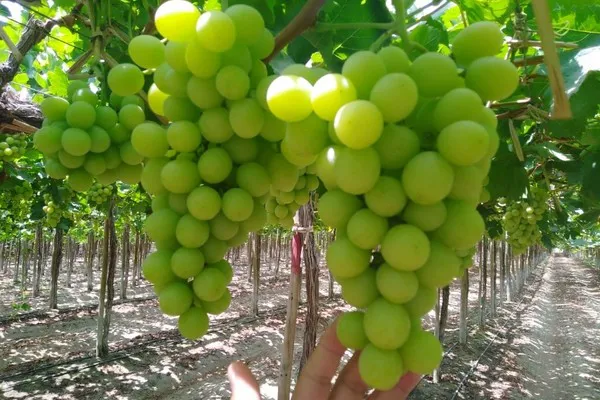The first larger arrivals from Peru to the EU and the UK came in early October steadily growing each week, the market is almost empty as the northern hemisphere season finished early due to the weather conditions. "The climate is becoming more volatile and it is no longer just a one off, with increasing issues around the world affecting all products and grapes did not escape this year," said Rob Cullum from Pacific Produce.
"Peru has the ability to produce grapes for most months of the year but the tendency from the Piura region has been to push more volume later to fit with the North American / Asian demand leaving Europe to consume local crops from Greece, Spain and Italy longer into the Autumn – this strategy has been mainly driven by price which means that in years like this when Europe goes short a gap develops very quickly. Brazil which is the other Southern Hemisphere player for this window has had problematic weather and good local markets which limits their ability to fill the missing volume, so the demand for Peru is now intense to try to bridge the gap to Namibia and South Africa."

"Peru has its own weather issues which have caused drought conditions in the north of the country where the authorities turn off the water supply, some of the bigger growers can cope with this as they have their own reservoirs, but the clock starts ticking the moment you switch to reservoir reserves. Some growers are having to make tough decisions about sacrificing some orchards to save others."
To add to the woes of exporters, the shipping lines are very short of containers, "No one has been able to tell me exactly why, it could be down to grapes and mangoes being a bit earlier and the blueberry exports also looking for space, but this happens every year to a certain extent. Some people are saying its down to other global conditions such as strikes in other regions holding up the return of containers. The shortage of course, has pushed prices up and often it is not a matter of price but the ability to get a slot."
So, Europe is willing to pay high prices but exporters are having trouble getting enough fruit, if they have the fruit there is no space on the ships. Bigger exporters with a bit of power and more money will get space, but small ones won't.
"We are concentrating on meeting our programs, if we have spare fruit we will supply the market, but like most growers and exporters we are unable to take advantage of the good European market. With all of these complications we will see what the overall export volume will reach right now it is too early to tell.
"Demand in Europe is bigger than supply and will remain so until Namibia, then South Africa come on the market. I think the market will remain undersupplied until the end of December – will it continue that depends on Namibia and South Africa and of course retail price levels which if they rise too much could affect consumption. Never a dull moment!"
For more information:
Robert Cullum
Pacific Produce
Tel: +44 (0) 1865877801
Email: [email protected]
www.pacificproduce.co.uk
